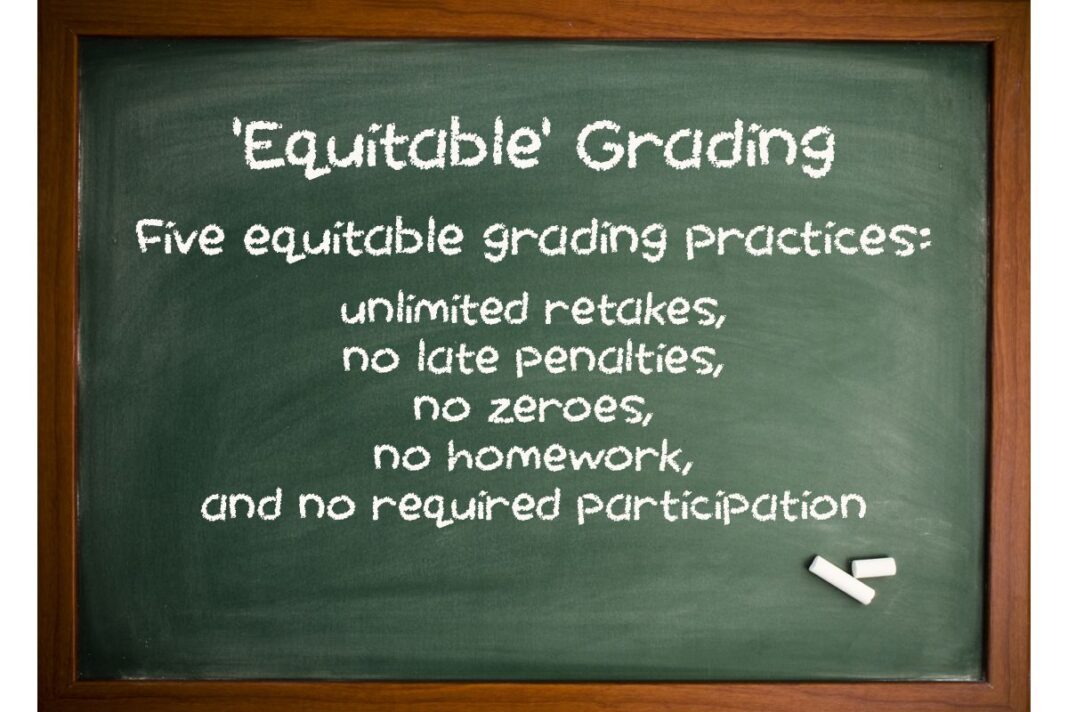The report identifies five equitable grading practices: unlimited retakes, no late penalties, no zeroes, no homework, and no required participation.
Lackluster student performance has plagued the Schenectady, N.Y., city school district for years. The school district, like many others, implemented a “grading for equity” policy in response to dismal test scores.
However, a recent national survey indicates that most teachers feel grade equity actually hurts students long term, although more than half of the schools and districts across the nation engage in the practice.
Schenectady’s 2022-2023 academic report said 95 percent of its high school freshmen were behind in math by three or more grade levels.
A year later, the district reported that in the first quarter of the 2022-2023 school year, more than half of its middle school students (grades 6-8) were three or more grade levels behind in both reading and math, while the daily attendance rate for high schoolers had dipped below 79 percent.
In response to these disappointing results, district leaders implemented a “grading for equity” policy whereby students are not penalized for handing in assignments late, and are allowed to retake tests with continuous guidance from teachers until their scores reflect proficiency levels. Incomplete grades for the semester require authorization from school principals. The policy took effect last fall.
“It’s almost academic fraud,” Christopher Ognibene, Schenectady High School social studies teacher, told The Epoch Times. He recalled a student who was given B’s all year but failed the end-of-the-year New York State Regents assessment with a score of 43.
“Watered-down report cards and transcripts mean nothing if you are left unprepared academically for college. And there are due dates in the real world—it doesn’t matter where you go after high school,” he said.
Most teachers agree with Ognibene’s assessment of the widely used approach, according to the recent survey by the Thomas B. Fordham Foundation and Rand Corporation education team members.
The Aug. 20 report, “Equitable Grading Through the Eyes of Teachers,” summarized responses from 967 teachers from K-12 districts across the country in late 2024.
“Turns out, teachers don’t like it when the powers that be take a sledgehammer to their few sources of leverage over student motivation and effort. Nor do they like giving students grades they don’t deserve,” the report says.








